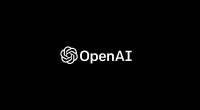AI firm Anthropic is, according to reports, on the cusp of sealing a deal to raise as much as $10 billion in a new funding round. This figure surpasses initial expectations and positions it as one of the largest so-called “megarounds” in the history of AI startups. The discussions are ongoing, but the final amount is a testament to strong investor demand in a highly competitive market, especially given that earlier reports had cited a target of around $5 billion.
This new financing would value the company at $170 billion, marking a major jump from the $61.5 billion valuation it received in an earlier $3.5 billion round. Leading the new investment is Iconiq Capital, a firm known for managing wealth for tech executives and investing in a wide portfolio of high-growth tech companies. Other expected participants include prominent venture firms such as TPG, Lightspeed Venture Partners, Spark Capital, and Menlo Ventures. The company has also held discussions with sovereign wealth funds, including the Qatar Investment Authority and Singapore’s GIC.
This megaround of funding will undoubtedly create a higher barrier to entry for smaller, less-capitalized startups. While the AI landscape is still wildly competitive across various layers, from hardware to applications, the resources now being amassed by players like Anthropic and OpenAI could lead to a consolidation of power at the foundational model level. Still, as these companies gain a lead in computational scale, it becomes exponentially more difficult for new entrants to compete.
The race to develop leading AI models is one of the most capital-intensive endeavors in the current AI race. The staggering costs of training, running, and refining these models are the primary drivers behind the escalating funding rounds. Training a single, state-of-the-art model can cost hundreds of millions of dollars, with expenses primarily tied to purchasing and operating powerful hardware, particularly advanced GPUs like those from Nvidia, as well as the specialized talent required to program them. These costs continue to soar annually, and without a constant inflow of capital, a company’s ability to stay at the technological forefront is severely hampered.
This economic reality has fueled a global arms race among top-tier AI firms. OpenAI, which is a direct competitor to Anthropic, is set to have its valuation increase to about $500 billion, according to reports, while Elon Musk’s xAI has also raised billions in a bid to scale its operations. This influx of capital is not for immediate profitability but for securing access to scarce computing resources and recruiting top research talent, both of which are central to building and maintaining a competitive advantage in the field.
Founded by former OpenAI employees four years ago, Anthropic has grown to compete with the likes of OpenAI and others in the AI sector. The company has its proprietary “Constitutional AI” framework, which embeds safety principles directly into its models. In fact, Anthropic’s latest flagship model, Claude Opus 4.1 is proficient in real-world coding, demonstrating a precision in handling multi-file changes without introducing new bugs. More recently, the firm brought Claude Code into its Enterprise and Teams plans.
The Tech Portal is published by Blue Box Media Private Limited. Our investors have no influence over our reporting. Read our full Ownership and Funding Disclosure →






